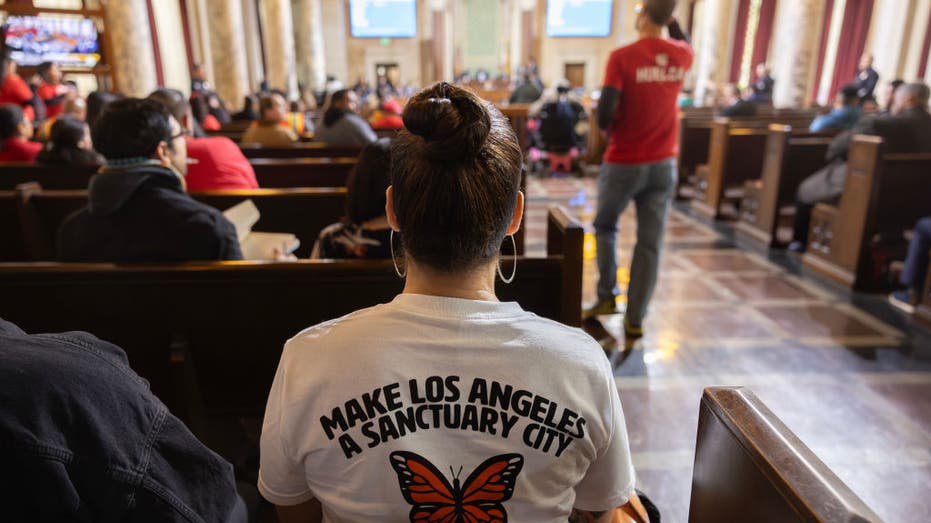House GOP Bill Threatens Federal Funding for Los Angeles and Sanctuary Cities by Restricting ICE Operations
Congressman Nick Langworthy proposes bill to cut federal funding from cities non-compliant with ICE enforcement.

Sanctuary cities across the United States could face significant financial repercussions under a new bill being introduced in the House of Representatives, targeting municipalities that do not comply with federal immigration authorities. The legislation, spearheaded by Rep. Nick Langworthy, R-N.Y., aims to cut off federal funding from cities and states that actively refuse to cooperate with Immigration and Customs Enforcement (ICE).
“I mean, we’ve had far too many instances where we have seen someone lose their lives at the hands of someone that’s in this country illegally,” Langworthy emphasized in an interview. “These sanctuary cities have gone out of their way to ignore federal law for far too long. And it's time that we get serious and we put teeth to things.”
The proposed Stop Dangerous Sanctuary Cities Act, which will be formally introduced on Tuesday, has already garnered support in the Senate through a companion bill brought forth by Sen. Ted Cruz, R-Texas. If enacted, the bill would allow the executive branch to withhold crucial federal funds from jurisdictions that fail to comply with ICE detainer requests or other aspects of federal immigration enforcement.
In addition to targeting funding, the legislation would override state and local laws that prohibit cooperation with federal authorities, giving local officers the latitude to assist with immigration enforcement even when barred by local policy. Langworthy highlighted that this measure is particularly relevant in his home state of New York, where laws such as the Green Light Law allow undocumented immigrants to obtain driver’s licenses and restrict the sharing of DMV data with federal agencies.
“That really got my attention when I met with ICE at the beginning of the year, and I met with Customs and Border Patrol agents in Buffalo during the Biden administration. They said that this is the largest impediment they have to do their jobs,” Langworthy explained. He noted that officers are often unable to verify vehicle tags during routine stops due to state restrictions, posing risks for law enforcement and hampering effective immigration oversight.
The renewed push to challenge sanctuary jurisdictions comes on the heels of a weekend marked by intense clashes in Los Angeles, where anti-ICE demonstrators confronted authorities following federal raids. Property damage and confrontations with law enforcement have reignited debate over the limits of local versus federal authority on immigration issues.
The response from political leaders has been sharply divided. Democratic officials have openly criticized the deployment of the National Guard by President Donald Trump against the wishes of California Gov. Gavin Newsom. Republicans, meanwhile, accuse progressive city and state leaders of failing to support federal officials and allowing unrest to spiral.
Langworthy expressed concern about the possibility of similar violence erupting in other major cities, including New York. “I think the president setting the tone very early on, this will not be tolerated. We will federalize the National Guard and maintain law and order in the streets of our country,” he stated. “Hopefully that is heard loud and clear across the country by anyone that looks to bring unrest to our streets and disrupt civil society.”
The legislation is expected to fuel ongoing national debate over immigration, states’ rights, and public safety as it moves forward in Congress.




